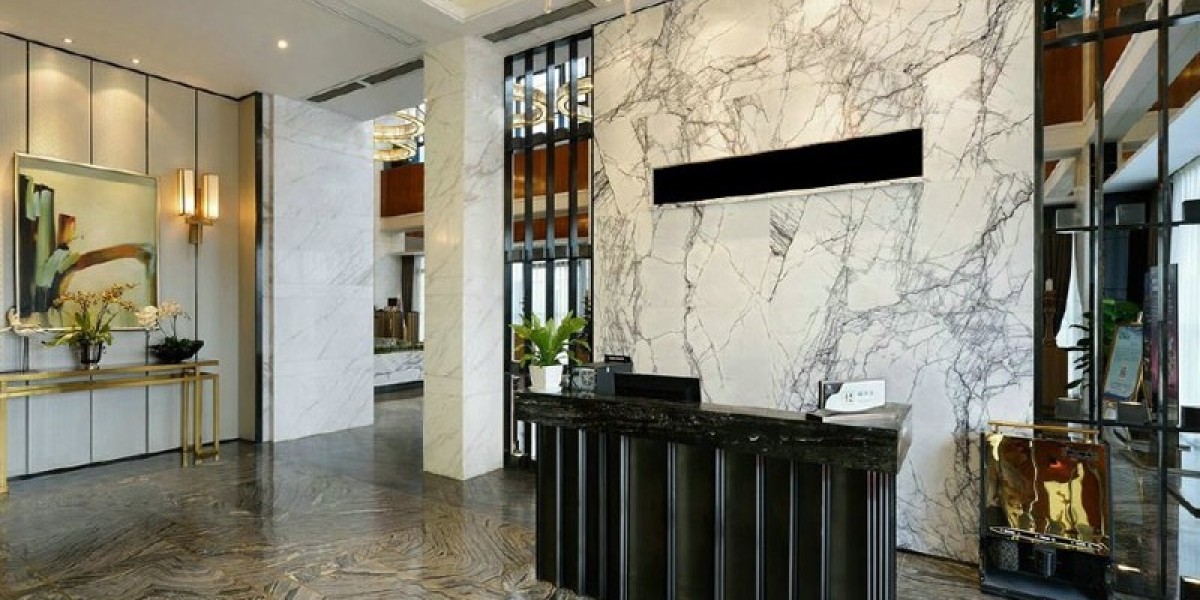Introduction
Imagine a marble so pristine, so luxuriously smooth, it almost feels like you're walking on moonlight. That’s the charm of Banswara White Marble is a gleaming gem from the heart of Rajasthan. Revered for its milky-white hue, natural patterns, and timeless beauty, this stone has earned a rightful spot in homes, hotels, and heritage sites alike.
What is Banswara White Marble?
Origin and Location
Banswara White Marble hails from the Banswara district in southern Rajasthan, a region rich in natural stone quarries. Nestled near the borders of Gujarat and Madhya Pradesh, this area is renowned for its abundant mineral wealth and artistic stone craftsmanship.
Unique Characteristics
This marble is known for its glossy white surface with occasional violet, grey, or golden streaks, giving it a very distinctive and elegant appearance. It reflects light beautifully and adds a feeling of spaciousness and luxury to any setting.
Geological Composition of Banswara Marble
Banswara marble is a calcitic stone, mainly composed of calcium carbonate. What makes it special is the fine grain size and high crystallinity, which provides both a glossy finish and exceptional strength. Its density and low porosity make it resistant to wear and water damage.
Why Banswara White Marble Stands Out
Color and Texture
Its creamy white shade, often laced with faint purple veins or waves, sets it apart. This marble fits effortlessly with both modern and traditional interior designs.
Strength and Durability
Despite its soft look, Banswara marble is incredibly tough, making it a perfect pick for high-traffic areas. It withstands the test of time—both in beauty and structure.
Natural Shine
Even without chemical polishing, Banswara White Marble retains a natural glow, thanks to its dense crystal structure.
History and Cultural Significance
Rajasthan has always been a land of palaces and temples—and marble is deeply woven into that legacy. Banswara marble continues that tradition, being used in temples, forts, and royal mansions, symbolizing purity and grandeur.
Popular Applications of Banswara Marble
Flooring
It adds a rich, elegant feel to floors, whether it's in a modern penthouse or a traditional haveli.
Wall Cladding
Banswara marble gives walls a majestic flair, making it a top choice for luxury hotels and villas.
Countertops and Tabletops
The smooth, reflective surface makes it ideal for kitchen counters and designer tables.
Decorative Sculptures
Due to its workable texture, artisans craft stunning idols and statues from Banswara marble.
Banswara Marble vs Other Indian Marbles
Makrana Marble
Makrana marble is whiter but more expensive. It’s famously used in the Taj Mahal. Banswara is a more budget-friendly yet elegant alternative.
Ambaji Marble
Ambaji marble is harder, but lacks the soft, glowing touch that Banswara brings to interiors.
Advantages of Using Banswara White Marble
Aesthetic Appeal
It instantly elevates the look of any space with its refined elegance.
Easy Maintenance
With simple mopping and sealing, this marble stays shiny and clean for years.
Long-Term Investment
Banswara marble adds value to your property, making it a smart investment in the long run.
Cost and Market Availability
Compared to other high-end marbles, Banswara is relatively affordable, ranging from ₹40 to ₹120 per square foot depending on the grade and finish. It’s widely available across India and is increasingly exported globally.
How to Identify Genuine Banswara Marble
Look for light purple or grey veins on a creamy white base.
Check the natural shine, even without polish.
Tap it—it should produce a sharp ringing sound, indicating density.
Tips for Maintaining Banswara Marble
Use pH-neutral cleaners.
Avoid acidic spills—clean them immediately.
Seal the surface every 12–18 months for added protection.
Environmental Impact and Sustainability
While marble quarrying isn’t without environmental concerns, many Banswara suppliers are now adopting eco-friendly mining techniques, including water recycling and responsible land use.
How Banswara Marble is Processed
From quarry to slab, the stone is cut, polished, and finished using advanced machinery while preserving its natural appeal. Final products are quality-checked for color consistency and durability.
Export Value and Global Demand
Countries like UAE, USA, and the UK are among the biggest buyers of Banswara marble. Its unique look and affordability make it a favorite in global markets, especially for luxury interior projects.
Conclusion
If there’s one stone that blends elegance, tradition, and durability, it’s Banswara White Marble. Whether you're designing a new space or revamping an old one, this stunning natural stone from Rajasthan can bring your vision to life—effortlessly stylish, endlessly durable, and always in vogue.








